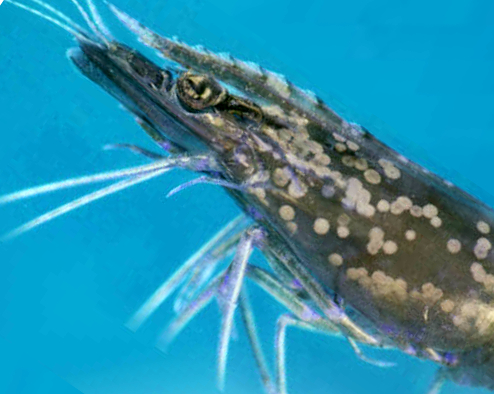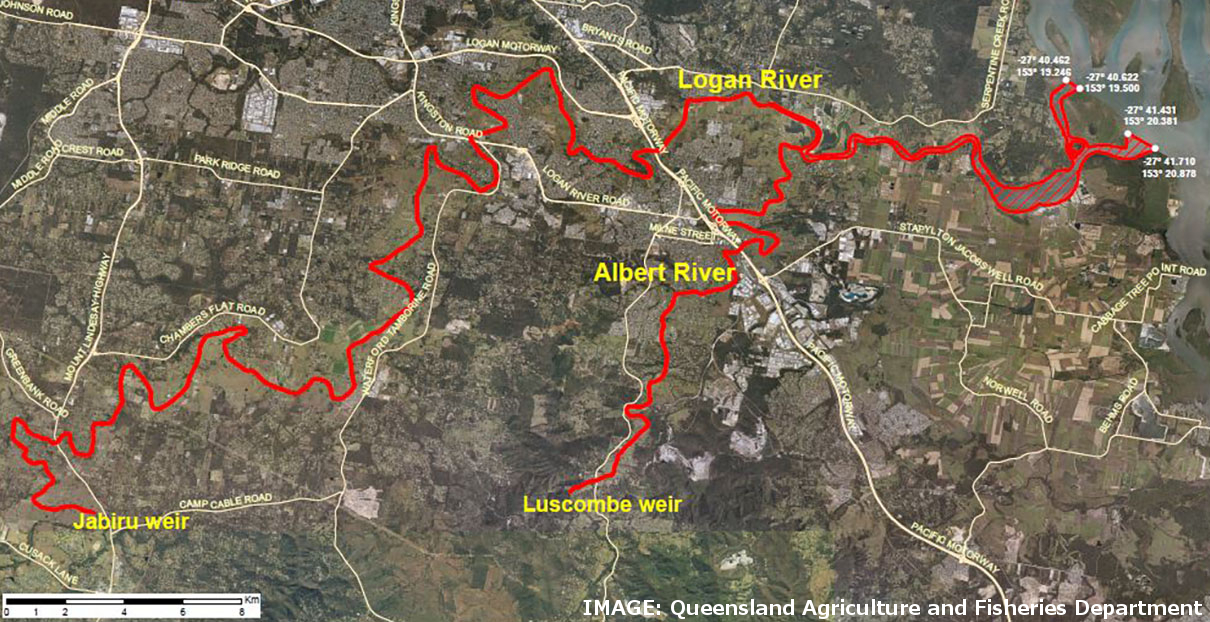White spot shut down imposed
 Sections of river near Brisbane have been closed to fishers after an outbreak of white spot disease in prawns.
Sections of river near Brisbane have been closed to fishers after an outbreak of white spot disease in prawns.
The virus poses no threat to human health (even through the consumption of prawns), but is transmitted between animals and often kills up to 80 to 90 per cent of prawn stocks in infected farms.
Authorities say it is the first such outbreak in Australia.
White spot disease has been detected at three farms on the Logan and Albert rivers, in an area where eight aquaculture facilities produce about 40 per cent of Australia's farmed prawns.
Biosecurity Queensland has put heavy restrictions on all eight farms, and the virus-free facilities have entered a self-imposed lockdown.
The restrictions include limits on movement, with prawn farmers told no-one can enter or leave their properties.
Queensland's chief biosecurity officer Jim Thompson says commercial and recreational fishers are forbidden from taking crustaceans and worms from the Logan and Albert rivers until further notice.
“It could decimate the aquaculture business of prawn farming and that's what it's done throughout the world,” he told the ABC.
“It causes massive mortality quite quickly, so if you've got your livelihood in a crop of prawns that's sitting there at the time it can really have a devastating impact.
“We are moving quickly to reduce the chance of the virus spreading any further through locally caught wild prawns.”
There is concern that recent rain may have washed the disease further downstream.
“With the confirmation in the wild, the focus will now shift to reducing the risk of spread of the virus and our objective is to slow it down to give us a better understanding of where it is and what it may be doing,” Dr Thompson said.
The prawn farms that rely on the Logan River are being disinfected while existing prawn stocks are destroyed.
Authorities do not know how white spot came to affect the Logan aquaculture farms.
Dr Thompson said the source of the outbreak was unknown, but extensive tracing and surveillance could determine it.








 Print
Print